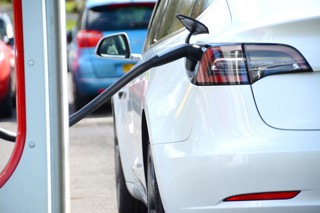The Government is being urged to review the advisory electricity rate (AER) for electric vehicles (EVs).
Fleet trade and training body the Association of Fleet Professionals (AFP) and the British Vehicle Rental and Leasing Association (BVRLA) say that the HMRC-approved 4 pence per mile (ppl) rate, used to reimburse EV company car drivers, is not fit-for-purpose.
Advisory fuel rates (AFRs), including the AER, are widely used by employers to determine how much to reimburse employees claiming business mileage.
HMRC publishes updated AFRs quarterly for petrol, diesel, and hybrid vehicles, with the latest AFRs published last month.
The rate for EVs has remained unchanged since 2018, when it was first introduced to cater for a growing number of plug-in company cars.
However, both the BVRLA and AFP say that it is no longer reflective of real-world conditions, and have written to HMRC requesting a review of the current AER level.
The pair have also asked for HMRC to establish an ongoing review process for the EV reimbursement rate and for a separate AER to be devised for plug-in vans
Furthermore, it wants Treasury officials to start developing a hydrogen reimbursement rate now, with the potential for more fuel cell vehicles on fleets in the future.
AFP chair Paul Hollick says that HMRC’s current AER was set at a time when business use of EVs was in its infancy. He labelled it a “blunt instrument”, using the same rate whether for a small city runabout or a large luxury 4x4.
“Clearly, the fuel costs of these vehicles are not the same,” he said. “The advisory fuel rates (AFRs) used for petrol, diesel and hybrid vehicles recognise that there are different engine sizes that have different fuelling costs. A similar approach needs to be adopted for their electric equivalents.”
BVRLA chief executive, Gerry Keaney, is concerned how the current AER may impact EV adoption rates. “The current AER rate and the process for determining it is not fit-for-purpose," he said.
“It has the potential to compromise the uptake of electric vehicles, as employees will not, in many cases, be adequately reimbursed for their business travel costs.”
Keaney says it is imperative that the tax system catches up, with reform of the AER process needed to ensure parity with the fairer process applied to AFRs.
Both the AFP and the BVRLA say they will continue to work together on the issue to ensure that the voice of the fleet industry is heard amongst policymakers.
Read more in the June edition of Fleet News.
























Login to comment
Comments
No comments have been made yet.